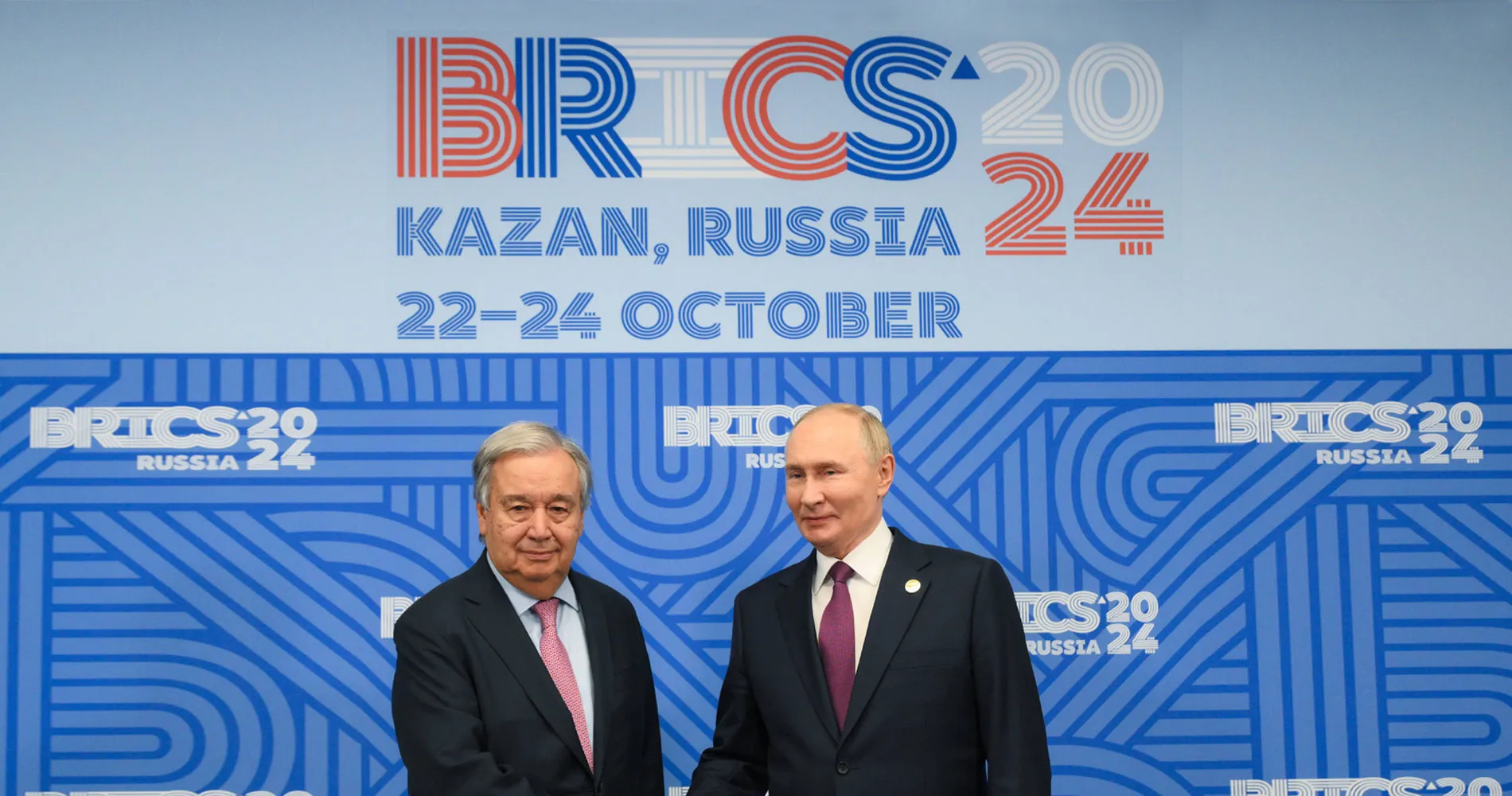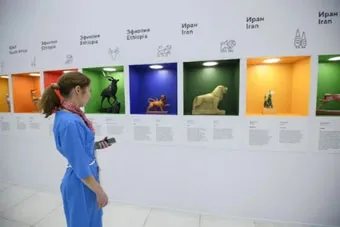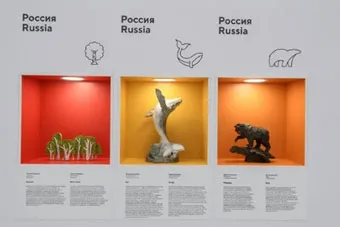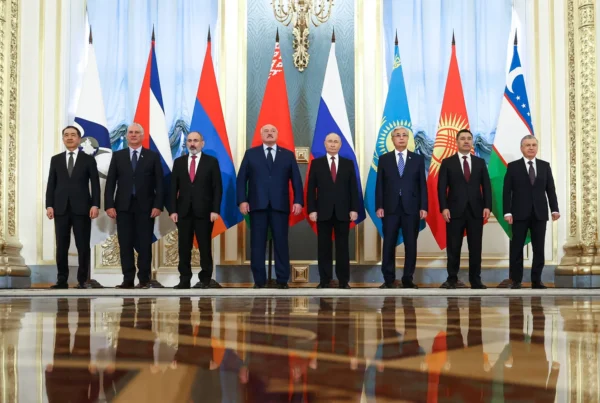In October 2024, Kazan, the capital of the Republic of Tatarstan in Russia, became the epicenter of global politics and diplomacy. The XVI BRICS Summit, held under the motto “Strengthening Multilateralism for Equitable Global Development and Security”, brought together leaders of the world’s largest emerging economies, new partners and representatives of international organizations. The Summit was not only a significant event for Russia as the Chair of the association, but also an important milestone in strengthening the role of BRICS in a multipolar world.
Murat Gibadyukov
27 November 2024
Arabic version | Chinese version | French version | German version | Spanish version
BRICS (named after the founding countries: Brazil, Russia, India, China, South Africa) originated as an economic association of major developing countries, but quickly turned into a powerful political and economic platform. BRICS countries account for more than 40% of the world’s population and about a quarter of the world’s GDP. At a time when the global economy is undergoing serious transformations and trust in traditional international institutions such as the UN and the IMF is declining, BRICS is becoming an alternative center of power.
The success of BRICS lies in its ability to unite countries with different histories, cultures and economic models around common goals: sustainable development, avoiding unilateral sanctions and building a just international order.
For the first time, the Summit was held in an expanded BRICS Plus format, opening its doors to partner countries. Delegations from 35 countries and six international organizations, including leaders from Asia, Africa, Latin America and the Middle East, participated in the discussions. The outreach format has become a tool to strengthen engagement with states of the Global South that are seeking independent development paths.
Although no new members joined BRICS at the Summit, the concept of “partner countries” was introduced. Partner status was granted to Algeria, Belarus, Bolivia, Cuba, Indonesia, Kazakhstan, Malaysia, Nigeria, Thailand, Turkey, Uganda, Uzbekistan and Vietnam, which emphasizes the growing interest in this association.
Summit outcomes: Kazan Declaration
The three-day meeting culminated in the signing of the Kazan Declaration, a strategic document that includes the main achievements and initiatives of the Summit. The document reaffirmed the BRICS countries’ commitment to:
- The formation of a multipolar world order based on international law;
- Opposing illegitimate sanctions and the dictates of unipolar centers of power;
- Strengthening financial cooperation, including the transition to settlements in national currencies.
At the Summit in Kazan, Russia proposed key economic initiatives aimed at strengthening cooperation among the BRICS countries. One of them was the development of the BRICS Clear depository system for securities accounting, which would reduce dependence on global financial systems. In addition, the creation of a grain exchange capable of stabilizing prices and protecting the food markets of the member countries was discussed.
Special attention was paid to the development of the BRICS Pay settlement system. It will simplify cross-border settlements and provide convenient conditions for financial transactions, contributing to de-dollarization and the development of the digital economy. These initiatives underscore the BRICS’ commitment to building an independent and sustainable economic infrastructure.
Another important idea was the formation of a platform for trading precious metals and diamonds, which will help develop domestic markets and minimize the impact of external factors. An investment platform was also proposed to become a tool for raising capital for infrastructure and industrial projects in the bloc’s countries.
For Russia, the Summit was not only a diplomatic success, but also an opportunity to demonstrate its capabilities in organizing international events. With support of the Government of Tatarstan and the Roscongress Foundation, the summit was held at the highest level.
Shamil Gafarov, Deputy Prime Minister of Tatarstan, noted that Kazan had once again proved its readiness to host events on a global scale. In addition to the political and economic agenda, the summit became an example of social responsibility: the organizers donated equipment and materials to children’s institutions in the region.
Culture as a tool of diplomacy
The Kazan Summit was not only a political but also a cultural event. A rich program was organized for the delegates: excursions, theatrical performances and exhibitions in the national colors of Russia and Tatarstan. The Ethnographic Mosaic exhibition introduced the participants to the cultural heritage of the BRICS countries, while the BRICS Universe project demonstrated unique photographs taken by Russian cosmonauts.
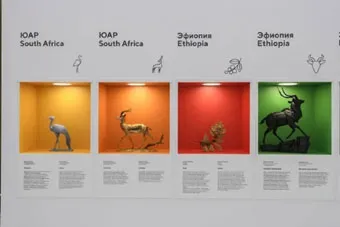
The Ethnographic Mosaic exhibition.
Source: Kommersant, Artemii Shumatov
One of the main events was the Made in Kazan exhibition, where Tatarstan’s innovative developments were presented. This success served as a basis for moving the exposition to the St. Petersburg International Economic Forum in 2025.
Global agenda: conflicts and challenges
The participating leaders focused on global challenges, including the conflict in Ukraine and in the Gaza Strip and the crises in Sudan and Afghanistan. Participants unanimously emphasized the importance of a peaceful settlement based on dialogue, rejecting unilateral approaches and interventions.
Russian President Vladimir Putin noted that the key to global stability remains compliance with the principles of the UN Charter. “BRICS is a platform for equal dialog, where every voice is important,” he emphasized.
BRICS as a global player
The XVI Summit in Kazan confirmed that BRICS is no longer just an association or a club of interests. «BRICS is no longer just a platform for dialogue, but a powerful organization capable of structuring world politics without external dictates. We are committed to strengthening financial independence, expanding investment opportunities and supporting the growth of the economies of the Global South and East, » said Vladimir Putin.
The importance of the association is growing with each passing year. The expansion of its membership, the development of economic and cultural ties and the pursuit of multipolarity make the BRICS one of the key platforms for the formation of a just world order.
The Kazan Summit is not just a meeting of leaders, it is a new step towards building a world where the interests of all participants in the global community are respected.


